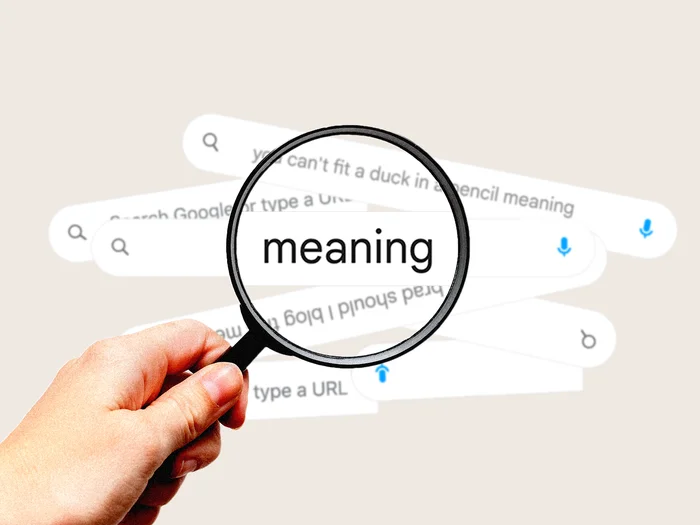
Google’s AI Overviews: Hilariously Wrong Interpretations of Nonsense Phrases Spark Debate
Google's AI Overviews, designed to provide quick answers to search queries, are facing scrutiny after users discovered a peculiar flaw: they confidently generate plausible-sounding explanations for completely made-up idioms. The bizarre trend began when users started typing nonsensical phrases followed by the word "meaning" into Google, prompting the AI to provide authoritative, yet utterly fabricated, definitions.
The phrase "you can't lick a badger twice" became a prime example, going viral as users marveled at Google's ability to conjure a detailed explanation for a phrase that likely never existed before. Greg Jenner, a British historian, shared his experience after trying the experiment. Many others chimed in with their own concoctions, triggering responses that were simultaneously impressive and alarming.

Kyle Orland from Ars Technica delved into the phenomenon, noting the AI's "almost poetic attempts to glean meaning from gibberish." He found that the AI often attributed meanings that the phrase creators themselves hadn't considered. For example, the phrase "dream makes the steam" was interpreted as a statement about imagination powering innovation.
However, the issue isn't just the AI's ability to invent meanings; it's the unwavering confidence with which it presents them. The AI Overviews often frame their explanations as definitive, leaving users with the impression that these made-up idioms are genuine sayings with well-established meanings. This can be especially problematic when the AI hallucinates sources, citing fictional films or historical events to support its interpretations.
One example cited the phrase "a dog never dances before sunset" and falsely claimed its appearance in the film *Before Sunrise*. Other examples included attributing made-up phrases to non-existent Greek myths or scientific experiments.
Experts suggest that this behavior stems from the underlying technology. Large Language Models (LLMs), which power AI Overviews, are essentially probability machines that predict the most likely word to follow another. While effective for generating coherent text, this approach can lead to inaccurate or misleading information when faced with nonsensical input.
Google acknowledges the issue, stating that its AI systems attempt to provide the most relevant results even for "false premise" searches. However, the company is also working to prevent AI hallucinations and limit responses to data voids where reliable information is scarce.
The "lick a badger twice" saga highlights the ongoing challenges of integrating AI into search engines. While AI Overviews can be helpful for quickly accessing information, users should remain critical and verify the accuracy of the results, especially when dealing with unconventional or nonsensical queries.
What do you think about Google's AI Overview explanations? Share your thoughts and humorous examples in the comments below!